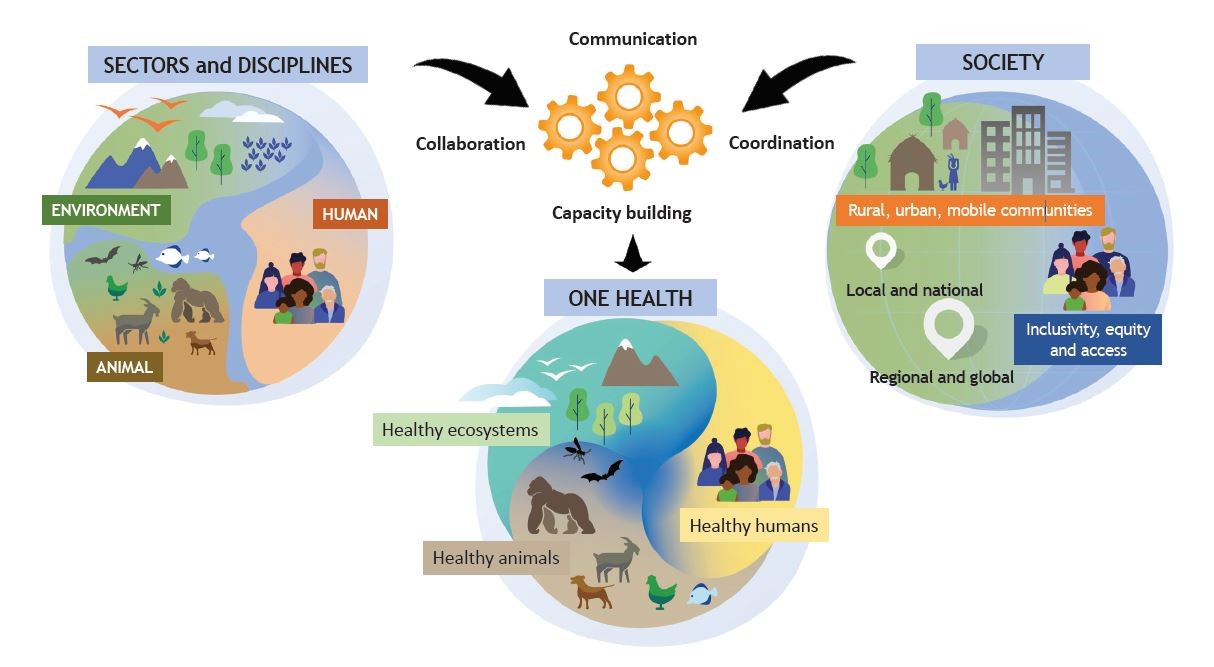On Monday, 4 July, a high-level subregional meeting was held in Ashgabat in a hybrid format to promote WHO supported One Health concept in Central Asia, the Neutral Turkmenistan newspaper reports.
The forum was organized on the initiative of the Ministry of Health and Medical Industry of Turkmenistan with the technical assistance of WHO. The meeting was attended by the Ministers of Health of five Central Asian countries, heads of the WHO European Bureau, the Subregional and Country Offices, heads of the subregional offices of the Food and Agriculture Organization of the United Nations (FAO), the World Organization for Animal Health, the United Nations Environment Programme (UNEP) and UN agencies working in Turkmenistan. World Bank, ADB, USAID also joined the event.
Dr Hans Kluge, the WHO Regional Director for Europe, addressed the forum via video message.
The purpose of the subregional meeting was to discuss issues of present cooperation between Central Asian countries and development partners in the field of One Health, as well as to draw the attention of the regional countries, UN agencies and international partners to support this initiative and contribute to its effective implementation.
The realization of the European Work Program for 2020-2025 “United action for Better Health” and the recommendations of the Pan-European Commission on Health and Sustainable Development (Monti Commission) are aimed at adopting into practice of One Health concept.
In addition, this concept is given special attention under the Roadmap on supporting health and well-being in Central Asia for 2022-2025.
The meeting reviewed the progress in the implementation of the One Health concept at the global and regional levels and emphasized the understanding of national priorities for the realization of the initiative in Central Asia, as well as partnership assistance of international agencies to enhance cooperation in this area.
The speakers of the forum noted that the One Health initiative in practice means a whole range of measures designed to unite specialists, knowledge, experience and information, consolidate the links between the three components – people, animals and the environment.
This is an integrated and multisectoral approach to creating an effective network of institutions, services, laboratories and experts on a common platform, which allow to share experience, information and knowledge, jointly conduct research activities on the prevention and detection of disease outbreaks, develop responses and tackle emerging health threats. The concept recognizes the health of humans, domestic and wild animals, plants, and the wider environment (including ecosystems) are closely linked and inter-dependent.
The high-level subregional meeting adopted a final document, which outlined the main directions for further joint steps to implement existing WHO promoted global and regional mechanisms and instruments.
Commenting on the relevance of the forum, the head of the WHO country office Egor Zaitsev, said: “Today’s conference is very important, because its theme One Health is common human health, common animal health and common environmental health. We all understand that there is an intersection between these three topics. Now the covid pandemic is still going on, we know that such epidemics happen periodically, because we constantly interact with animals and the environment and can catch their diseases. Therefore, we must consider the health of people, animals and the environment holistically. The topic is very important. In order to try to change such a problem, we need to cooperate – the ministries of health, agriculture, environment and all international entities and agencies dealing with animal health. Moreover, this is also a very important topic for the United Nations, because it is impossible to attain the Millennium Goals without One Health.”
One Health concept in Turkmenistan
In Turkmenistan, the One Health initiative is implemented jointly by the Ministry of Health and Medical Industry, the Ministry of Agriculture and Environmental Protection, including the State Veterinary Service and many other departments and ministries that coordinate interrelated activities through vertical and horizontal national programs. The program is financed from the state budget.
Turkmenistan supports the idea of working out One Health national strategies in order to coordinate actions on eliminating health risks arising from the interaction of humans, animals and the environment.
The Ministry of Health and Medical Industry of Turkmenistan emphasizes the importance of One Health promoting at the regional level as one of the main directions of the roadmap in support of health and well-being in Central Asia for 2022-2025. ///nCa, 5 July 2022
